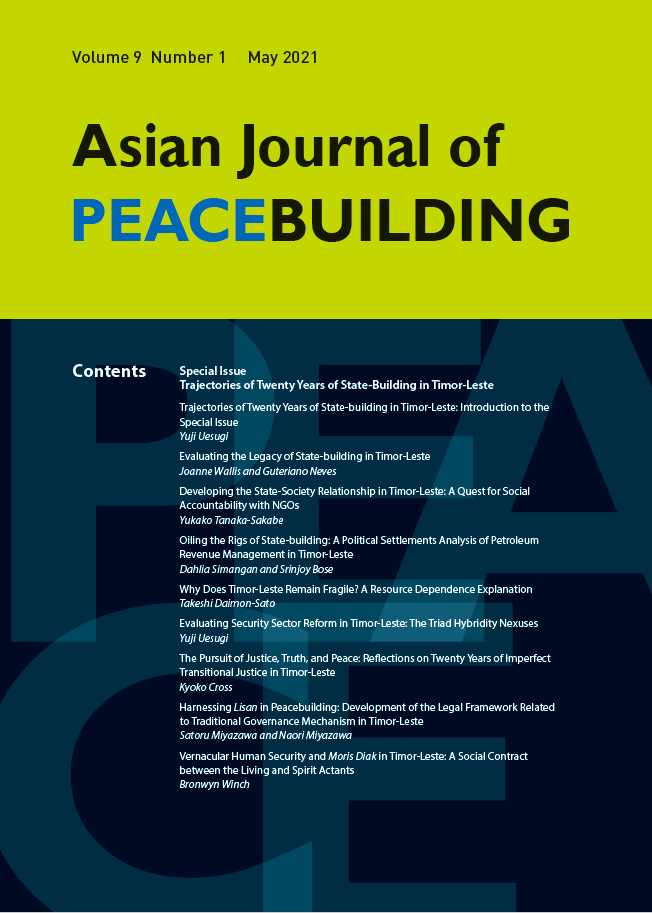The concept of human security argues that the improvement of people’s wellbeing and livelihoods is a vital component in the stability of the state. What happens,
however, when the state is not viewed as the only (if at all) source of influence on people’s everyday security? This article argues for a particular vernacular of human
security that recognizes a social contract between the living with spirit actants, in ways that can often compete with or challenge state-building efforts. In Timor-Leste,
ancestral spirits (matebian sira) can directly intervene in the physical safety of their living descendants, and livelihoods (in terms of food security) often depends on engagement between the living and their ancestors as well as nature spirits (rai-nainsira).
Back Issues
Special Issue: Trajectories of Twenty Years of State-building in Timor-Leste
Vernacular Human Security and Moris Diak in Timor-Leste: A Social Contract between the Living and Spirit Actants
Bronwyn Winch pp. 183-207
PDF Download

